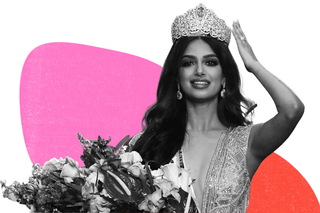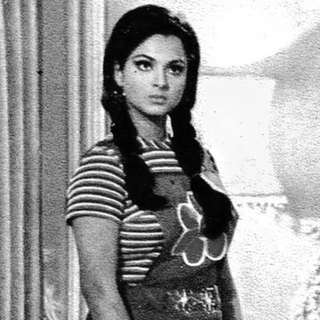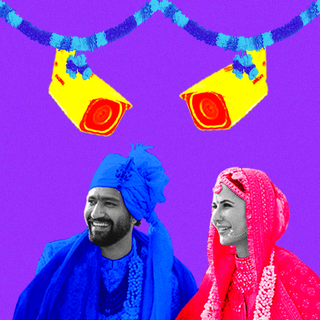
India’s Miss Universe Victory Shouldn’t Take Away Focus From Beauty Contests’ Toxic Culture
Can we celebrate Indian representation while being aware of the harm beauty pageants have inflicted on cultural discourse?

Indians on Twitter are celebrating Chandigarh’s Harnaaz Sandhu winning the “Miss Universe” title in Israel today. The last time an Indian won the said beauty pageant was 21 years ago — when Lara Dutta beat contestants from across the world at the turn of the millennium.
However, the sentiment of national pride — both on and off social media — is discomfited by the larger politics around beauty and competition. Can we celebrate an Indian representation at a global platform, whilst being woefully aware of the harm beauty pageants have inflicted on cultural discourse for generations now?
Irrespective of global recognition, it is hard to overlook the tragic folly that underscores any beauty competition. For one, they incessantly reinforce narrow standards of beauty. “While many beauty contests nowadays attempt to incorporate qualities such as intelligence and social awareness as judging criteria, all the winners are [still] very [conventionally] attractive. Far from shifting the focus away from physical appearance, the ‘crowning moment’ merely reinforces people’s belief that a woman’s physical beauty is her most important quality,” Matthew Murchie had written for South China Morning Post.
Murchie is right. Even in a country as diverse as India — be it in terms of skin color, height, weight, facial features — beauty pageants bolster a form of Euro-centric aesthetic homogeneity. As Rajvi Desai wrote for The Swaddle, “I have a serious concern for those judging [Miss India 2019] though: how will they choose just one? These contestants are all slightly different versions of the same woman. And when I say slightly different, I mean their clothes might be a different color, or maybe they’ll don different-sized heels.”
Related on The Swaddle:
Beauty Norm Rebellions in 2020 Redefined Beauty — But Didn’t Eliminate It
Naturally, for people who don’t fit into the narrow, and often unrealistic, mold of beauty, pageants can act as a reminder of what society constantly tells them: their looks are “inferior.” “The skinny models on such platforms, that are their main focus, come across to millions of female viewers as a set standard that should be maintained in order to look beautiful and achieve success in life,” an article states, adding that “[Being] unable to fulfill these desires… leads to lower self-esteem and self-perception.”
In fact, reports suggest that as a result of constantly being subjected to judgment based on their outward appearances, many participants of beauty pageants go on to develop eating disorders — alongside issues with their self-esteem. Just last year, People reported about Alicia Machado, crowned as Miss Universe in 1996, who struggled with anorexia and bulimia. She gained weight shortly after she was crowned, and pageant officials allegedly threatened to strip her of the title unless she could manage to lose weight — resulting in the disorders. And this is a woman who won the competition.
The fact that pageants promote only a specific “body type” isn’t a secret. But it’s not just a well-known fact, over the years, it has also been normalized. “I agree with what the beauty pageants are doing. When it comes to [the] Miss India contest, the winners will represent India globally… If we include dusky people, they may not reach the last level globally at contests like Miss Universe or Miss World because there, the importance is given to fair skin,” Archa Mehta, a fashion stylist from Mumbai, had said in 2019.
India’s obsession with fair skin is also telling of our collective casteist and classist attitudes. Earlier this year, when an individual wanted to “insult” actor Tilottama Shome based on her looks, they simply said: “She looks like a maid.” The feeds of the bulk of India’s fashion influencers on Instagram are but a “crude display of privilege and the mono-cultural world of the so-called upper castes or Savarnas” as an article on The Print reads.
In fact, its author went on to describe the beauty and lifestyle aesthetics we idolize as “casteism with a good vibe.”
Related on The Swaddle:
Study: People Find Women Wearing Make‑up More Trustworthy
The idea of beauty being a basis for “competition” seems a bit ridiculous given how subjective beauty can be. We literally have a common saying — “beauty lies in the eyes of the beholder” — that teaches us that. Earlier this year, Esther Honig, a journalist, asked Photoshop editors from across the globe to edit her face according to the beauty standards prevalent in their respective countries, and the results attest just how subjective beauty is.
But until we turn beauty into a competition, how will the beauty brands, whose entire business model is structured around lowering the self-esteem of their consumers, make money? “Exposure to beauty-enhancing products in advertisements lowered consumers’ self-evaluations, in much the same way as exposure to thin and attractive models… has been found to lower self-evaluations,” a 2010 study found.
However, as an article by BBC News points out, for many contestants, beauty pageants may, perhaps, act as a means to escape the socio-economic rung of the ladder they were born into, or as a way to seek empowerment so they can bat for issues they care about on a global platform. But given how damaging pageants can be to society at large — and as in Machado’s case, to even winners of pageants — are they really the best way to empower women? I think not.
One may be tempted to think beauty pageants and competitions don’t really matter in a contemporary context. The instinct is to believe that people are aware of the politics at play, and would be discouraged from getting emotionally invested. But the barrage of “India won after 21 years at a global competition” headlines seek to overshadow that knowledge. This is not about Harnaaz Sandhu, Miss Universe, or national pride. It is about a culture rotten to its core, which tries to make itself relevant through designer gowns and glamorous sets while pretending to care about ending “world hunger” or achieving “world peace.”
As Murchie concluded: “With regard to beauty contests, there’s no doubt the disadvantages far outweigh the benefits.”
Devrupa Rakshit is an Associate Editor at The Swaddle. She is a lawyer by education, a poet by accident, a painter by shaukh, and autistic by birth. You can find her on Instagram @devruparakshit.
Related


Woe Is Me! “My Parents Mock Me for Not Being ‘Girly.’ How Do I Cope?”
